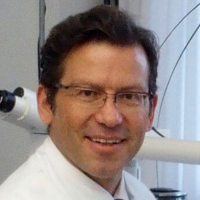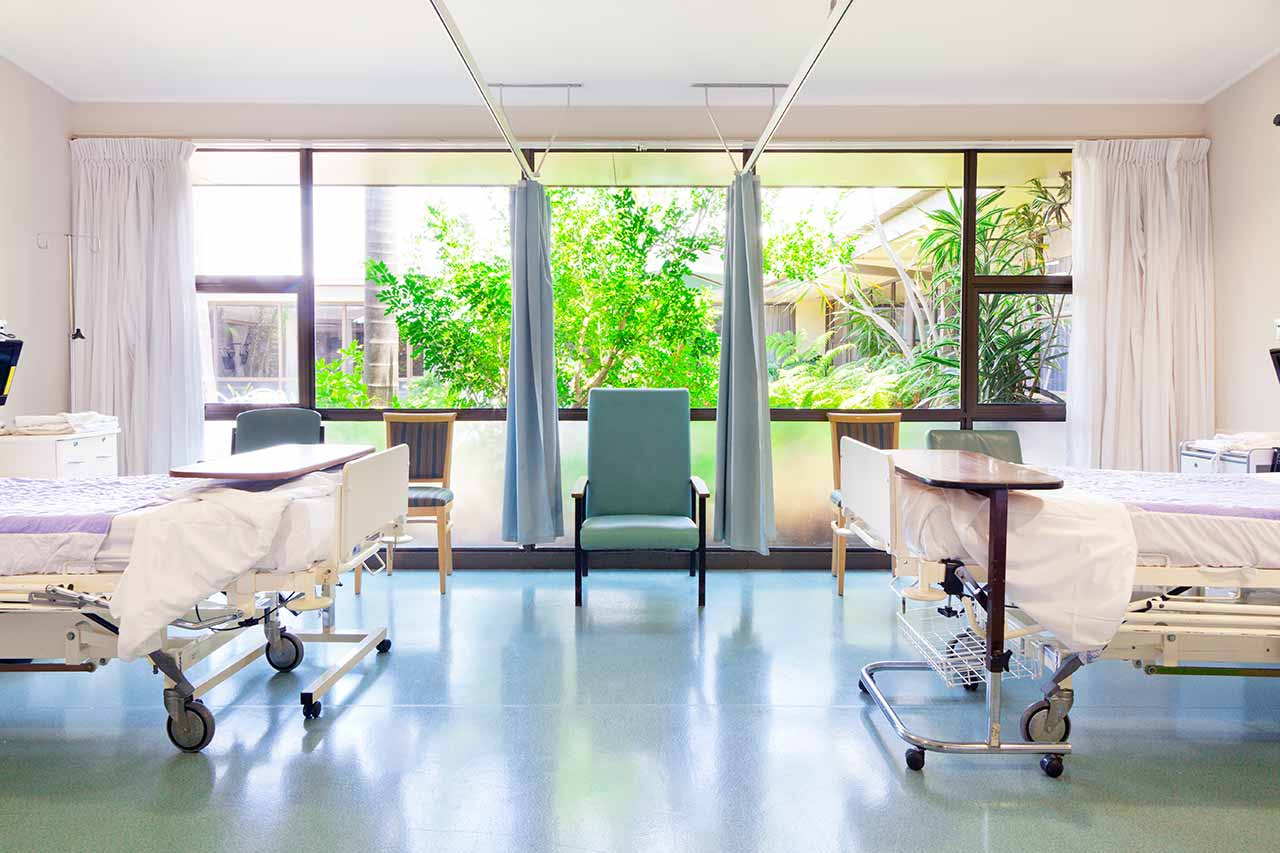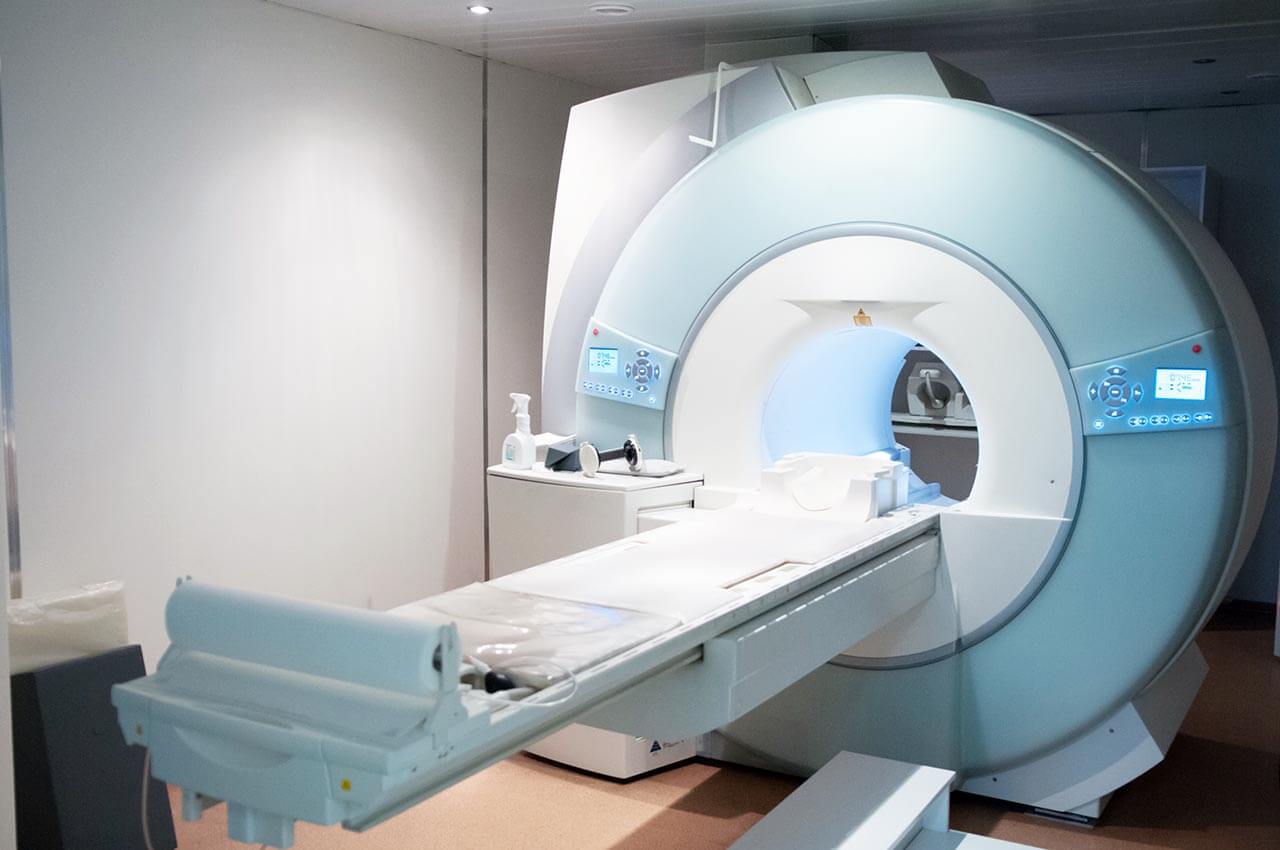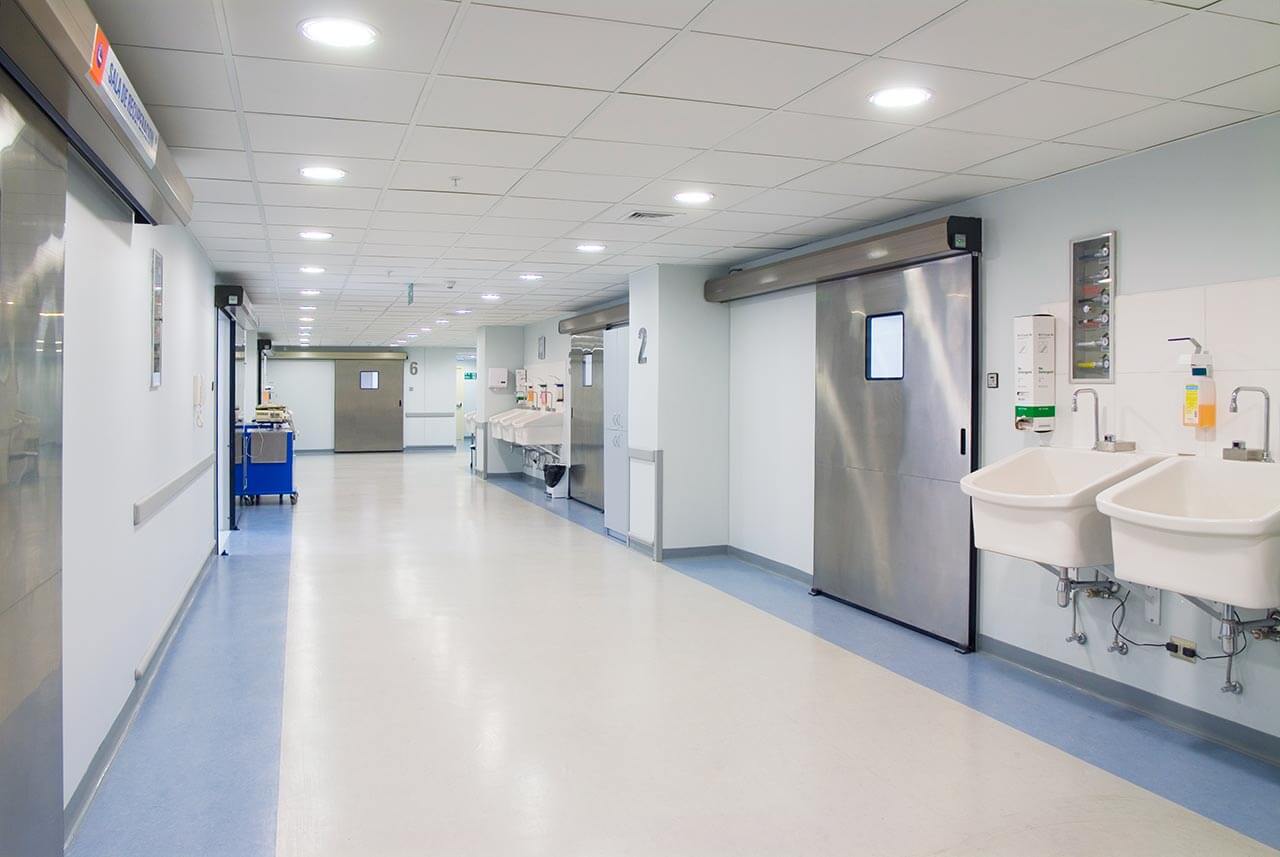
The program includes:
- Initial presentation in the clinic
- clinical history taking
- review of medical records
- physical examination
- dermatological examination
- anesthesia
- treatment with dye pulsed laser therapy
- nursing services
- services of all leading experts
- explanation of individual treatment plan
Required documents
- Medical records
Service
You may also book:
 BookingHealth Price from:
BookingHealth Price from:
About the department
The Department of Adult and Pediatric Dermatology, Allergology at the University Hospital Saarland Homburg offers the full range of services in these medical fields. The department specializes in the diagnostics and treatment of benign and malignant skin tumors, inflammatory skin diseases, infectious and autoimmune skin lesions, allergies, sexually transmitted infections, as well as hair and nail disorders. The department is proud of its advanced infrastructure: three high-tech operating rooms, including those with the possibility of performing operations on obese patients (weighing up to 230 kg), rooms for modern laser therapy, a Phototherapy Section, and numerous specialized outpatient clinics. The department also has an in-house Histology Laboratory for carrying out histological examinations for suspected inflammatory skin diseases and skin tumors. The patients' skin health is in the safe hands of highly qualified doctors, for whom it is important to perform effective treatment using the most modern and sparing methods.
The department is headed by Prof. Dr. med. Thomas Vogt. The specialist is a highly qualified dermatologist with a world-wide reputation, demonstrating excellent treatment results even in the most complex clinical cases.
The department regularly admits many patients with benign and malignant skin neoplasms. Such patients are diagnosed and treated in a highly specialized center certified by the German Cancer Society (DKG). The doctors at the center cooperate closely with many departments of the university hospital, thanks to which they can provide each patient with comprehensive medical care. The therapeutic process begins with diagnostics that include a clinical examination, dermatoscopy (in combination with digital analysis, if necessary), and histological examination of suspicious skin areas. With appropriate clinical indications, dermatologists also perform a sentinel lymph node biopsy, lymph node ultrasonography, CT, MRI, PET-CT, or scintigraphy. The attending physician determines the particular list of diagnostic procedures depending on the clinical case. After the establishment of a diagnosis, the department's specialists proceed to treatment, which often begins with a microsurgical resection. In the early stages of skin cancer, laser tumor removal can be performed. When precancerous processes are detected in patients, photodynamic therapy often becomes a treatment option. If the diagnostics find any metastases in the patient, malignant tumor removal surgery is followed by systemic treatment, including chemotherapy, targeted therapy, immunotherapy, and others. In cooperation with radiation therapists, irradiation is carried out, including stereotactic radiation therapy. After the completion of the course of treatment, the patient is recommended to undergo regular follow-up examinations for the prevention or early detection of recurrence.
The department treats benign and malignant tumors in children over the age of 2 years. Diagnostic and treatment methods for skin cancer in children are almost identical to those used in adults.
The department has three operating rooms equipped with state-of-the-art technology. The department's team of surgeons successfully performs operations for resecting skin neoplasms, operations for treating chronic non-healing wounds, skin grafting, interventions for inverse acne, operations for hyperhidrosis and nail pathologies, as well as reconstructive plastic surgery. The medical facility has excellent opportunities for laser surgical treatment of hemangiomas, spider veins, rosacea, acne, cellulite, pigmentation disorders, and tattoo removal. The specialists work with laser devices such as CO2 lasers, diode lasers, argon lasers, and ruby lasers. In addition, patients are offered IPL (intense pulsed light) therapy, which is most often used for photorejuvenation.
The department's doctors have rich experience in photodynamic therapy (PDT). This treatment method is indicated for patients with precancerous processes, superficial malignant skin neoplasms, viral and inflammatory skin lesions, including lichen planus, acne, scleroderma, hyperkeratosis, and other pathologies. Photodynamic therapy involves the local application of a special photosensitizing agent to a neoplasm or pathological focus and exposure to it with beams of a certain length (the red part of the light spectrum), which leads to the death of tumor cells or cells affected by inflammation. The advantages of the therapeutic technique lie in its high efficiency, while healthy tissues near the affected area remain intact.
In the field of allergology, different allergy tests are carried out, for example, patch tests, desensitization (oral and subcutaneous allergen injection), radioallergosorbent tests, oral provocation tests, scratch tests, prick tests, etc. The above-mentioned tests allow doctors to accurately determine the type of allergy and provide optimal treatment with pills, ointments, gels, creams, or allergen-specific immunotherapy.
The department specializes in the diagnostics and treatment of the following diseases:
- Benign and malignant skin neoplasms, including in children over the age of 2 years
- Inflammatory skin diseases: psoriasis, neurodermatitis, and others
- Autoimmune skin diseases: systemic lupus erythematosus, urticaria, and others
- Acne
- Occupational dermatoses
- Chronic non-healing wounds
- Hyperhidrosis
- Hemangiomas, spider veins, and rosacea
- Skin pigmentation disorders
- Alopecia and other hair diseases
- Nail diseases
- Allergic diseases
- Other diseases of the skin and its appendages
The department's therapeutic options include the following:
- Drug therapy: pills, injection therapy, ointments, gels, and creams
- Photodynamic therapy
- Surgery
- Micrographic surgery and microsurgical interventions
- Electrosurgery
- Cryosurgery
- Laser surgery: CO2 lasers, diode lasers, argon lasers, and ruby lasers, as well as IPL (intense pulsed light) therapy
- Dermabrasion
- Surgical curettage for hyperhidrosis
- Skin transplant
- Reconstructive plastic repair
- Other treatment methods
Curriculum vitae
Higher Education and Professional Career
- 1983 - 1989 Medical studies at Ludwig Maximilian University of Munich.
- 1991 Medical examination.
- 1990 - 1992 Intern in the Department of Dermatology, University Hospital Wuerzburg; Intern and Assistant Physician in the Department of Surgery, KKH Selb Hospital.
- Since 1992 Research Associate and special training at the University Hospital Regensburg, Department of Dermatology.
- 1992 Thesis defense. Subject: "Studies of DNA changes in malignant skin lymphoma and pseudolymphoma".
- 1995 Board certification in Dermatology.
- 1995 - 1997 Research Internship, Scholarship from the German Research Foundation, California Institute of Biological Research and Sidney Kimmel Cancer Center, San Diego, California, USA.
- Since 1997 Creation of a Working Group and foundation of a laboratory in Regensburg. Focus: "Molecular dermatological oncology".
- Since 1998 Senior Physician in the Department of Dermatology at the University Hospital Regensburg.
- 1990 Habilitation. Subject: "Molecular determinants of melanoma development".
- 2003 C3 Professor in Dermatology at the University of Regensburg (temporarily).
- 2008 C3 Professor in Dermatology at the University of Regensburg (for life).
- 2009 W3 Professor in Dermatology at the University of Saarland (for life).
Photo of the doctor: (c) Universitätsklinikum des Saarlandes
About hospital
The University Hospital Saarland Homburg is the largest hospital in the city of Homburg and the most important medical facility in the region. The hospital, which currently has 30 specialized departments and 20 institutes, was founded in 1947 and operates on the basis of Saarland University. The hospital plays a leading role in medical education, research, and medical care both in the state of Saarland and throughout Germany. With vast experience in serving foreign patients, the medical facility is also widely known in the international medical arena.
The pride of the hospital is state-of-the-art equipment that allows the doctors to perform high-precision comprehensive diagnostics and the most sparing treatment even if a patient has a severe pathology. Patients are offered innovative medicine based on the very latest scientific achievements. At the same time, the hospital offers many therapeutic methods that are used only in leading medical centers in Europe, including da Vinci robot-assisted surgery, CAR T-cell therapy, TAVI and MitraClip catheter-based procedures, innovative laser procedures, etc. Great importance is paid to ethical and social competence. The hospital is constantly improving the work of its medical personnel and infrastructure to provide medical services that meet the highest standards.
As a multidisciplinary medical complex, the hospital offers highly effective treatment of the full range of common diseases as well as rare and severe pathologies. The efforts of the medical staff, which includes over 600 doctors and 2,000 nurses, are focused on the patient and their unique needs and desires. The doctors always devote enough time to personal communication with their patients, provide them with moral support, and are sympathetic to every life situation.
Photo: (с) depositphotos
Accommodation in hospital
Patients rooms
The patients of the University Hospital Saarland Homburg live in comfortable single, double, and triple patient rooms with a modern design. Each room is equipped with an ensuite bathroom with a shower and a toilet, as well as everything else necessary: a comfortable bed, a bedside table, a TV, and a telephone. In addition, enhanced-comfort rooms and specially equipped rooms for people with disabilities are available for the patients.
Meals and Menus
The hospital offers healthy and delicious meals three times a day: buffet breakfast, dinner with a wide choice of dishes for every taste, and a light supper. The menu features dietary and vegetarian dishes. There is also a cafeteria on the territory where one can taste delicious dishes and have a cup of coffee, tea, or some refreshing drinks
Further details
The standard patient rooms include:
Religion
The hospital regularly hosts catholic and evangelical devine services. The services of representatives of other religions are available upon request.
Accompanying person
During an inpatient program, an accompanying person can stay with you in the patient room or in a hotel of your choice.
Hotel
During an outpatient program, you can stay in a hotel of your choice. The managers will help you choose the most suitable options.





